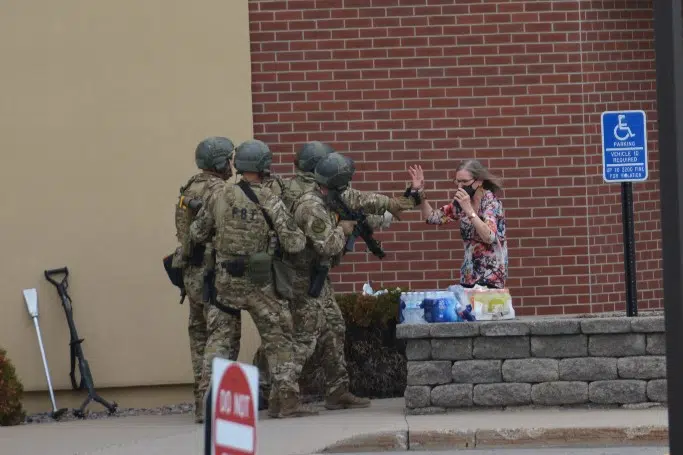(KNSI) – Five people were held hostage during an attempted bank robbery in St. Cloud on Thursday. While the St. Cloud Police Department says no one was physically injured during the hours-long standoff, Chief William Blair Anderson said the Wells Fargo employees would be invited to a debriefing session in the near future because of the psychological impact of the event.
Dr. Steven Loos, director of outpatient mental health services at Central Minnesota Mental Health Center, says unlike a one-on-one therapy session, a critical debriefing happens when the group of survivors meets together with a mental health professional.
“This is a way for the group to kind of come to a mutual understanding of what happened, process their emotions, process their reactions,” Loos said. “Then, the facilitator tries to normalize some of the things that are happening for them, explain why those symptoms might be showing up, and then the group can share ideas for how to take of yourself going forward.”
After a traumatic event like Thursday’s hostage situation, Loos says a person’s mind and body might change in a way that tries to make another traumatic experience less likely to happen. Loos calls this “tragically beautiful” because while the body is trying to protect itself, it can also cause difficulty for that person.
“One of the common reactions after a traumatic event would be hypervigilance, which is you’re constantly scanning your environment for danger,” Loos said. “They’ll be looking at the body language of the people that they’re interacting with, they might be going out to dinner and constantly looking at the room and looking for a threat; it could be really hard for these people to stay in the moment.”
Other potential reactions after trauma include getting startled very easily or experiencing unwanted, intrusive memories about the traumatic event.
A key step for the survivors, Loos said, is being able to choose how they want to move forward with getting support for any mental health concerns.
“Trauma is about the loss of power and control,” Loos said. “We want recovery to be about power and choice.”
That could look like group therapy similar to the critical debriefing session, or that could be meeting with a therapist individually.
“We can find some small comfort in that the most common reaction to a traumatic event is to return to baseline functioning,” Loos said. “What that means is after a period of time, most likely people start to feel and act how they did before the traumatic experiences. However, some people need help getting there, and that’s when we would encourage people to reach out and ask for that help from a professional.”
He said one thing he cautions survivors not to do is try to cope with unwanted feelings or memories with alcohol or drugs.
“That can be really, really problematic, and so I just want to caution against that.”
Find mental health resources from the state of Minnesota here.







